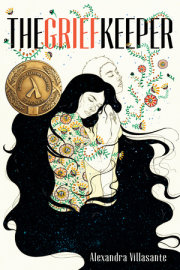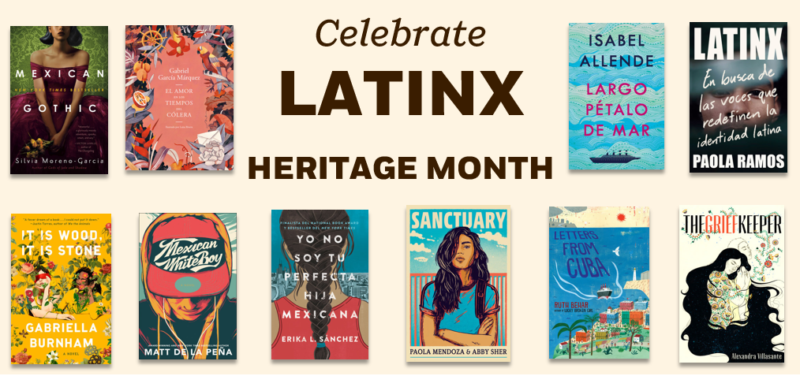Chapter 1
We believe in luck. The good kind and the cruel. The kind that graces and the kind that cripples. The kind that doesn’t care what you deserve.
My mother cleaned for a wealthy couple in Colonia Escalón, in the time before our bad luck. Mrs. Rosen liked my mother because she spoke English and because she would play mahjongg with her. After Mamá had scrubbed the toilet and the bidet the Rosens never used, she would make tea, and I would help Mrs. Rosen lay the clicking tiles facedown on the table.
I was allowed to watch them play, as long as I was quiet. After Mamá would inevitably lose, she would joke about La Mala Suerte that followed her through life.
“Oh, Maria, don’t give a kneina hura,” Mrs. Rosen would say. “Don’t call bad luck down on yourself.”
But that’s not how luck works. She comes when she comes, with an open hand or a fist. You never know which one.
“What does
priceless mean?” My little sister leans close and whispers her words into my neck. She says the English word the way you would in Spanish, “prees-less.” Her accent is still terrible. I whisper back, voice almost a sigh, because we’re not supposed to talk in this room.
“It means without a price.”
Gabi narrows her eyes at me in annoyance. It is very odd to see my mother’s expression on my twelve-year-old sister’s face.
“I know
that,” Gabi says, exhaling like she’s talking to una tonta. “But what else does it mean?”
I dart a look at the closest metal doors. The two guards are talking. Not looking at us.
“
Priceless means it’s so valuable, you can’t pay for it. You can’t replace it. Ever.” Like you, I think, then wish I hadn’t. If I let myself worry about how little I can protect Gabi, I will scream.
“That doesn’t make any sense. Why did that guard say a joke was priceless?” She points to one of the guards, and I immediately push her hand down. I don’t want their attention on us.
“I don’t know,” I say distractedly. Lunch is almost over. We eat fast so we can have a few minutes together before Gabi goes to her classes and I go to mine. She’s in an advanced class because she knows so much English. I sit alone with a guard in a small room meant for babies because there is no one else here in my grade. The guard gives me worksheets to do and books to read. I never take the ones in Spanish. I want to show her, and the people I know are watching on the video cameras mounted on the thin walls, how good an American I can be. The guard doesn’t let me use the computer.
But today is different. After I take Gabi to her class in one of the trailers parked inside the walled courtyard, my guard—her name tag says REYNOLDS—takes me through the longer hallways that lead, I think, to the exit. I panic a little, thinking that they will push me out the door, or take me somewhere without Gabi. I take a deep breath and tell myself to steady my voice. I want to be respectful and not show fear.
“Where are we going, ma’am?” I ask Reynolds.
She slows her stride and looks at me with an expression that seems to say,
I forgot you could talk.
“Your interview,” she says curtly before picking up her pace again. I knew it was coming. The first night at the border, I knew to say we were asking for asylum. Now they want to know why, to ask questions. I’m ready. I have the right answers. I pat the front pocket of my jeans, find the envelope where it has been since the day we left home, then hurry to catch up with Reynolds.
Reynolds doesn’t interview me, but she does guard the door. I sit at one of the chairs at a small table and wait. There’s nothing personal in the room. Not a plant or a picture or even a cup with a funny design. It’s a room that doesn’t give anything away.
A woman in a business suit, tall like my tía Rosa and with a messy blond bun, bustles in and sits across from me. I love the word
bustle because there isn’t a word exactly like it in Spanish.
“My name is Mary Schoenbeck. You can call me Mary. I will be conducting your interview. Do you need an interpreter?”
If I needed an interpreter, how would I understand her enough to ask for one? There was a time when I thought I could be an interpreter, working for the government or the UN. Now I only want us to be allowed to stay.
“No, ma’am. I speak English fluently.”
This surprises the woman enough that she looks up from her stack of folders. “Good. That makes my job easier. Your name is Marisol Morales, correct?”
I nod.
“Please speak your answers aloud,” she says, pointing to a recording device on the table.
I clear my throat. “Yes.”
“Marisol Morales, this is what is called a credible fear interview. You have claimed that you are seeking asylum in the United States of America due to your belief that you are in physical danger of torture or death.” She barely takes a second to breathe. “You’re seventeen, correct?”
“Yes. March. Twenty-seven.” I spent my birthday somewhere between Guatemala and Mexico. Even Gabi forgot to say feliz cumple.
“All right. Tell me, in your own words, why are you seeking asylum in the United States?”
My words. My words want to jump out of my mouth, out of my heart. I have been keeping them inside for weeks.
“We.” I stop. Then start again. “My brother, Pablo, was forced to join a gang. La Mara Salvatrucha.”
Even though the recording device is on, Mrs. Schoenbeck scribbles in her notebook.
“After that, our father was threatened. He had to pay money.”
“Even though your brother was in the gang?”
I stare at her.
“I mean, wouldn’t he get some kind of break? A sort of discount for friends and family?”
I look into her eyes to check if this is a joke I don’t understand. But I don’t see a smile on Mrs. Schoenbeck’s face.
“It was a different gang. Barrio 18.”
“I see,” she says, like she thinks that I am lying.
“There is nothing like a break for friends or family. When Papá could no longer pay, he went to San Salvador to find better work. He used to work at the Pepsi factory.” Before he was fired in disgrace for coming to work drunk. Before he gambled and drank and wasted away all our lives. Tía Rosa said not to mention that.
I keep going with my story. It’s a map to follow—first one place to land, then another. I follow the story so I don’t get lost. “He was gone for two weeks. Then we got a letter that said he would not be coming back. And if we did not pay his debts, we would see trouble.”
“Who was the letter from?” Mrs. Schoenbeck asks.
I shrug. “It wasn’t signed.”
“Do you have it with you?”
“No. Mamá burned it. And all the other ones.”
“How many were there? Can you remember?”
“There were five.” Pablo said not to worry. It was Barrio. Salvatrucha would take care of it. He and Antonio, Tato y El Negro, and all the others would protect us.
“And what did you think that meant?”
“I thought Barrio meant to hurt us. To kill us if we didn’t give them money.”
“But why? Why you specifically?”
Follow the story. Follow the map. “Because my father was in debt.”
Mary Schoenbeck rubs the back of her neck, and suddenly I want to do the same, to release the tension from my neck and shoulders. I didn’t even realize I was hunched forward. I sit a little straighter.
“So, this was extortion. Nothing personal.”
I feel sick. Every word she pulls out of me makes my throat ache. “Can I have some water?” I ask. That’s something you can do when you don’t know what else to do with your hands. Hold a glass of water. Reynolds leaves the room and almost immediately comes back with a cold bottle of water.
“Yes,” I say after a long gulp. “If we didn’t pay, Barrio would kill us.” I’m glad Gabi isn’t here. I’m not sure she could stick to the story. I would be worried about it coming out the wrong way.
Mrs. Schoenbeck reads over her notes, flipping the pages back, then forward again. “So, um. Your father is . . . missing? Dead?”
I shake my head, then shrug. Mamá thinks Papá left us. That he has saved himself, a selfish man who abandoned his family. But I think he was
made to disappear, like a terrible magic trick.
“I don’t know. He never came back.”
“And you don’t know where he is?”
“No.”
“All right.” She takes out the forms I completed when we arrived in Pennsylvania, four days ago. The I-589 form that asks for asylum. She writes a note in the margin of the first page. I wish I could read upside down.
Mrs. Schoenbeck circles her fingers in the air, a sign to continue. “Go ahead. Your father disappeared—mysterious circumstances.”
“Yes. Then Pablo got in trouble with the leader of his gang, Antonio.”
She sits up, her eyes catching mine. “Got in trouble how?”
I squirm. I know I have to stay with the story. But it’s so difficult talking about this part. It is the most difficult part. The least true part.
“Because Pablo wanted his girlfriend.”
“Whose girlfriend?”
“Antonio’s girlfriend. Liliana.”
“Ah, okay, so there was a love triangle.”
“Yes.”
Mary Schoenbeck exhales loudly. “So, first there was a gang—Barrio 18—that threatened you because of your father’s debts. Then another gang’s leader, Antonio, was upset because of a girlfriend. And that’s why he threatened you and your family?”
The way she talks about it makes it seem so silly, so small. “Yes. We got death threats.”
“What kind?”
“Notes on the door. Strangers coming up to my mother on the street, telling her to watch out. One time, a window was broken at the salon where Mamá and I worked.”
I close my eyes for a moment and see the image of my mother wringing out the sponge in the bucket, scrubbing at the words painted on the side of our house:
¡Putas de mierda! “Go back a bit,” Mrs. Schoenbeck says. “What was the date your father disappeared?”
I am suddenly so tired that I want to cry, which is useless. Tears can’t help us. I answer all her questions, though she repeats them using different words two or three times. I answer her like I am a machine. All the dates I had practiced with Tía Rosa, the map I have to follow.
“And what was the date that you were detained?” I snap my attention back to Mrs. Schoenbeck.
“
We were detained,” I say.
She stops writing and looks up. “Excuse me?”
“We. I am here with my sister, Gabriela. I’m her guardian. In loco parentis,” I say. I immediately wish I hadn’t. If she knows that means
in the place of a parent in Latin, then she thinks I’m showing off. If she doesn’t know what it means, then she’ll hate me for knowing something she doesn’t.
“Yes, I understand.” She scribbles more notes. “What about Pablo. Why didn’t he come with you?”
Her question, even though I expected it, makes me pause. I don’t think of my brother. That is the rule I made. Pablo’s memory weighs on me, all the time.
“He was killed. By the gang. It’s only Gabi and me now.” I push down the urge to say “Gabi and I” because sounding the way real people talk is important in learning a new language. I learned a lot from watching satellite TV in Mrs. Rosen’s kitchen.
“Where is your mother?”
“She is staying with my tía Rosa. Rosa Morales. A hidden place north of San Miguel.”
I am too slow, mijita. I cannot keep up with you and Gabriela. I will stay with Rosa until it is safe to leave. Then I will make my way to Mrs. Rosen’s house. We will be together again, te lo juro. After more questions that go in circles, Mrs. Schoenbeck puts down her pen, folds her hands, and leans forward. This is the moment.
Copyright © 2019 by Alexandra Villasante. All rights reserved. No part of this excerpt may be reproduced or reprinted without permission in writing from the publisher.








